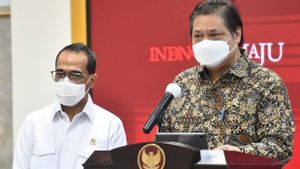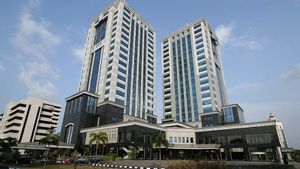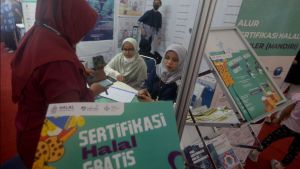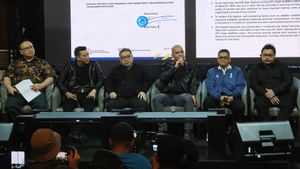JAKARTA - Member of Commission XI of the House of Representatives Anis Byarwati stated that now is not the right time to raise Value Added Tax (VAT), especially in the midst of the COVID-19 pandemic condition that is not yet clear when it ends.
"Raising VAT today in the midst of the recovery of the impact of the COVID-19 pandemic is definitely not the right time. The policy of raising VAT will be a new burden for the people, as well as retail businesses," said Anis Byarwati as quoted from Antara, Tuesday, May 25.
According to her, raising VAT will directly hit people's purchasing power, and in turn, will lower the level of consumption which means it will decrease state revenues.
Anis who served as Vice Chairman of the State Financial Accountability Agency (BAKN) of the Indonesian House of Representatives confirmed that the policy of raising VAT, especially in the midst of tax stimulus that seems to be on sale even until the tax amnesty discourse volume 2 appears, as questionable.
However, senior MCC politicians stated that the tax target is still too high.
"Tax reform measures should not hurt the sense of fairness," she said.
Earlier, Coordinating Minister for Economic Affairs Airlangga Hartarto said President Joko Widodo had sent a letter to the House of Representatives to discuss plans to increase VAT rates.
SEE ALSO:
"The president has sent a letter with the House of Representatives to discuss this. The government is certainly concerned about the national economic situation," said Menko Airlangga during an online media conference in Jakarta, Wednesday, May 19.
Menko Airlangga explained that there are a number of discussions related to the Fifth Amendment Bill on General Provisions and Procedures for Taxation (KUP). Among others, VAT includes Income Tax per person and personal, reduction of corporate and related VAT rates of goods/services, Sales Tax on Luxury Goods (PPnBM), Excise Law, as well as related carbon tax, to tax amnesty.
Furthermore, Airlangga said sales or service taxes also became a discussion in the House of Representatives. The goal is for the government to be more flexible in regulating the manufacturing sector as well as the trade and services sector.
"It will be enforced at the right time and the scenario is made wider, but not rigid as it has been enforced," said Airlangga.
The English, Chinese, Japanese, Arabic, and French versions are automatically generated by the AI. So there may still be inaccuracies in translating, please always see Indonesian as our main language. (system supported by DigitalSiber.id)


















